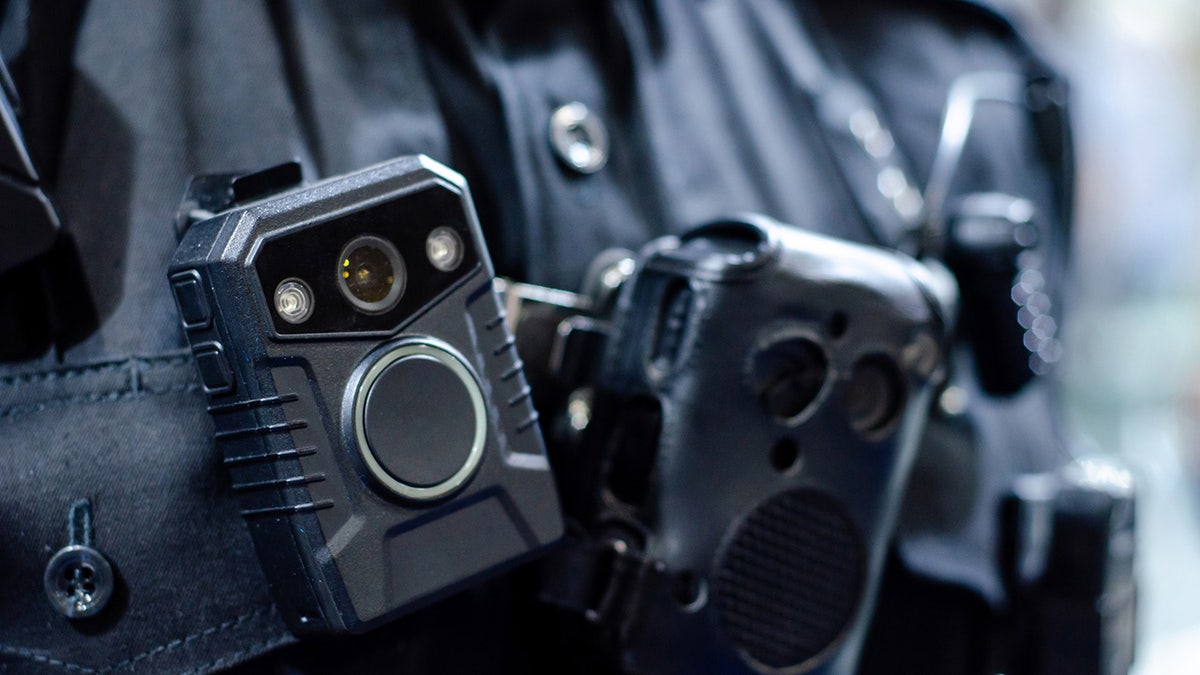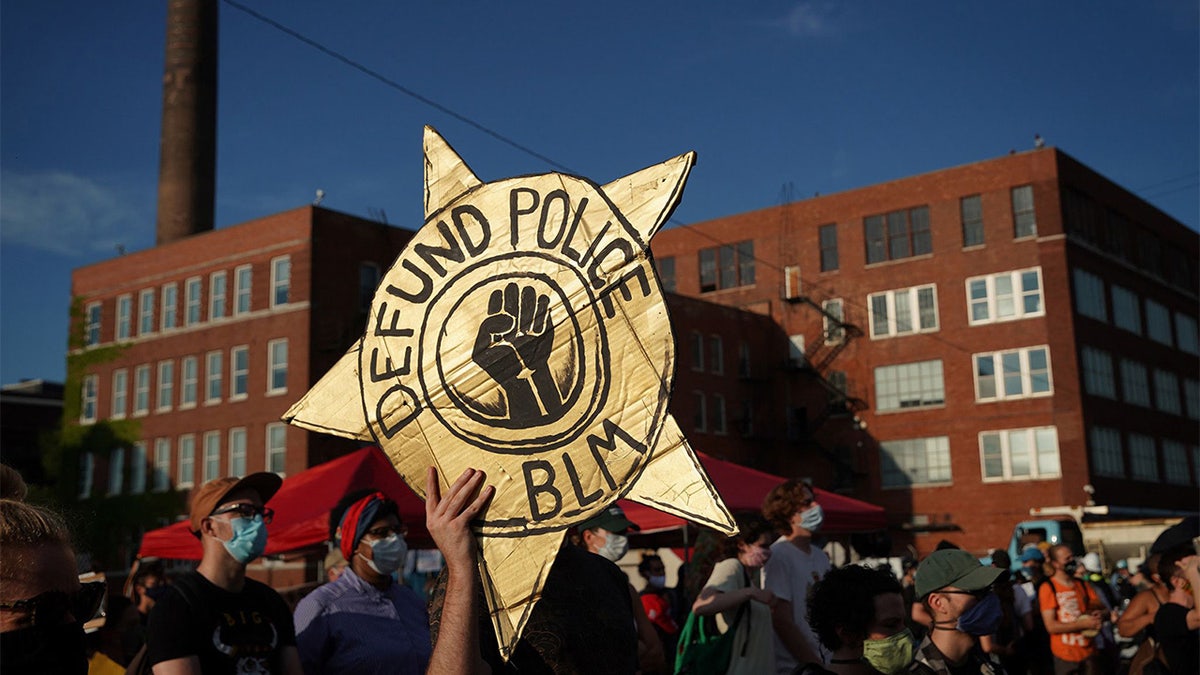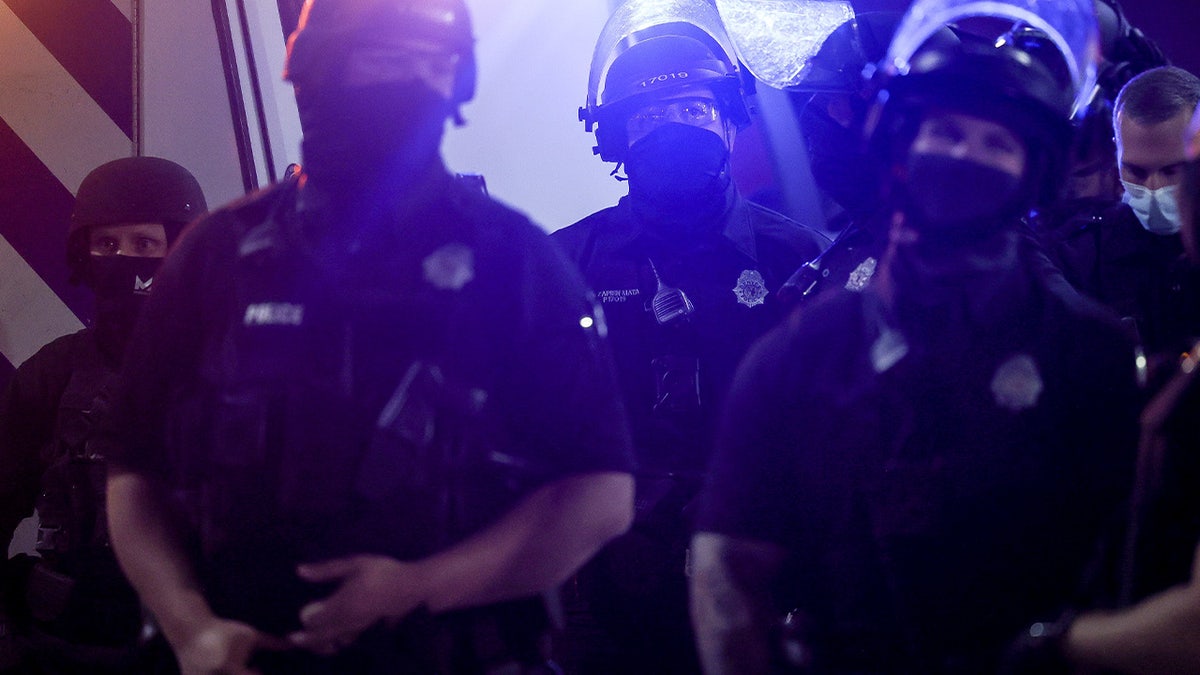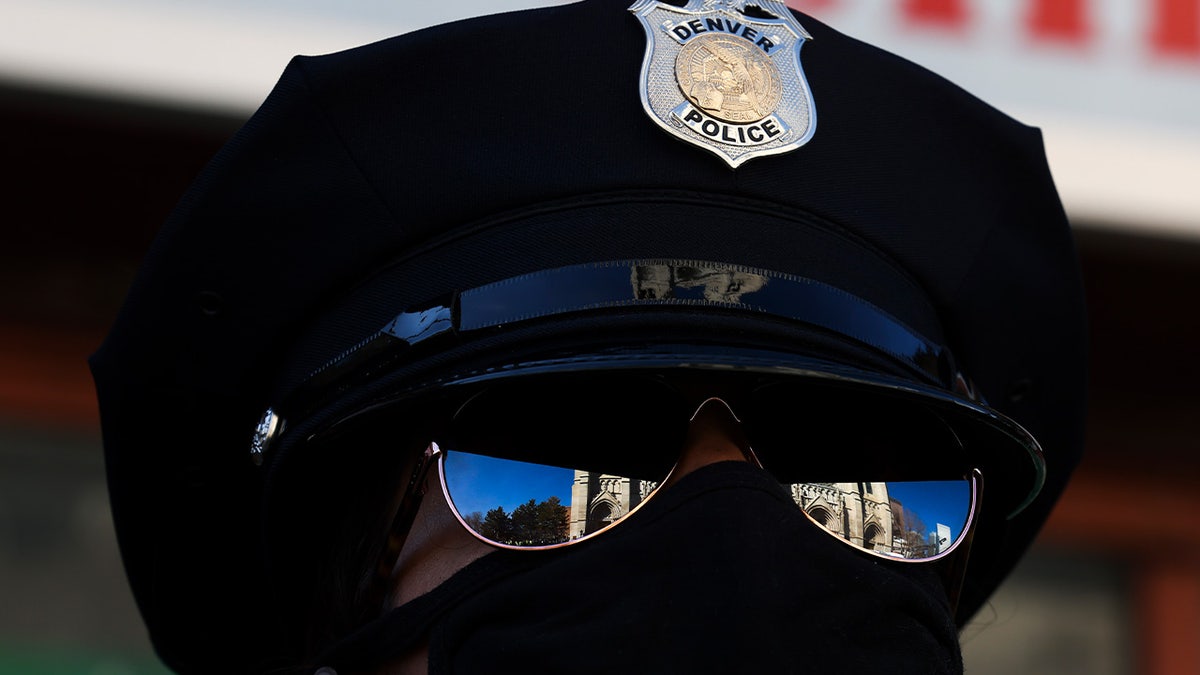Former law enforcement officer sounds alarm after Denver police not allowed to pull over drivers for low-level traffic stops: 'We're in trouble'
Michael Letts, a veteran law enforcement officer and the founder of InVest USA, a not-for-profit organization donating chest protection to state and local police, speaks to Fox News Digital.
A law enforcement veteran shared how a recent directive from the Denver Police Department ties the hands of law enforcement who put their lives on the line for their community.
Michael Letts, a veteran law enforcement officer with 30 years of experience and the founder of InVest USA, a not-for-profit organization donating chest protection to state and local police, spoke to Fox News Digital about the Denver Police Department's new directive.
Under this new policy, suggested to the Denver Police Department by the Denver City Council last year, Denver police officers in the Mile High City will not pull drivers over for minor traffic infractions, like a broken taillight, window tint or window tags, that do not pose an immediate threat to public safety.
"It's frustrating for members on the streets to be on the street to be dictated how to do their job by somebody that has no idea how the job functions or what they're doing," Letts said.
HOW US CAN BECOME ‘LAW ENFORCEMENT-MINDED COUNTRY’ AFTER DEFUND POLICE EFFORT: FORMER ICE OFFICIAL

Michael Letts, a veteran law enforcement officer with 30 years of experience and the founder of InVest USA, said Denver's decision to remove low-level traffic stops came because they were having issues hiring and retaining officers. (iStock)
A Denver Police spokesperson told Fox News Digital that this year it implemented the policy, which emphasizes officers focus their attention on more serious violations, such as speeding, careless driving and and not obeying traffic signals, all of which the department noted can help prevent crashes and save lives.
The spokesperson also noted there are exceptions to the policy, such as when officers have reason to believe drivers are involved in other, more serious crimes. Drivers pulled over for more serious offenses can also receive secondary, lower level offenses.
Letts said Denver's decision to remove low-level traffic stops came because they were having issues hiring and retaining officers.
"They came up with the great idea in Denver, from the ordinance standpoint, that they have difficulty getting enough police protection and protecting the citizens and the safety that is involved with it," he said. "Well, they don't address the real issue."
"The real issue, quite frankly, is that they don't pay them anything to begin with. We have difficulty providing the kind of salaries that they need," he said. "Look, everybody knows in law enforcement you're not going to retire as a millionaire, OK? We accept that. And in fact, the vast majority of law enforcement officers want to serve the public. They don't expect to make a dime off of it."
"They get great satisfaction, such satisfaction that they're willing to put their lives on the line every day. And that's part of the job," he said.

Republicans are ramping up their election messaging on crime and law enforcement support. (Getty Images/File)
A Denver Police spokesperson told Fox News Digital the department's staffing is at 93.7 percent. Full authorized strength of the force is 1,639 officers. It currently employs 1,536 officers. The spokesperson also noted that Denver Police officers are paid $74,176 per year after graduating from the training academy and $106,000 by the fourth year. The starting salary for those beginning the training academy is $68,878.
Letts said the events of the last decades have created a "perfect storm" to affect law enforcement.
"We have a number of factors that have converged in what I call the perfect storm. First of all, we created an image in the mainstem media that law enforcement was a bad profession," he said. "That there were a lot of bad apples in there and that they were racists and bullies."
BIDEN MUST SUPPORT POLICE OFFICERS INSTEAD OF UNDERMINING THEM
"That's been around for quite some time, but what made it different in the last few decades is that you had a concerted effort, like the Black Lives Matter and others, who created an image, and the mainstream media played with that image," he said. "It started with George Floyd. It started with Minneapolis."

Police officers stand near the Colorado State Capitol during a protest on Nov. 6, 2020, in Denver. (Michael Ciaglo/Getty Images)
Letts said politicians in Denver are attempting to alleviate the tension stemming from the 2020 riots by stopping minor traffic violations that can give the appearance of "harassment."
"Denver thought about what they can do to alleviate the situation and to make the public think that they're [police] are not racist," he said. "They came up with the bright idea of not implementing traffic violations."
DENVER EVICTIONS REACH RECORD LEVELS FOR THE SECOND YEAR IN A ROW
"It saves time, these guys don't have to worry about pulling over for minor violations, and the public won't be ‘harassed’ by law enforcement," he said.

Many states initiate low-level traffic stops for a number of reasons, such as a broken taillight, window tint or expired tags. They can sometimes expose bigger problems. (iStock)
The veteran law enforcement officer said this recent move diminishes the respect and trust that Denver police will do their job.
"The message that they are sending to law enforcement is that they don't respect your ability to do the job and I don't think that you know how to help deter crime," he said.
Letts said this news is a "good thing for criminals."
"This is a good thing for criminals. This means that they can get away with a lot more," he said. "And for the cop, it's just one more incident. They don't want to pay, they don't want to give me proper equipment, and they don't trust me to do my job."
"At some point, law enforcement officers have to decide if it is worth wearing a badge. And they have to ask themselves a serious question if it is worth putting my family through this for 20 to 25 years before they can retire."
"This is happening all over the country, and it's quite shocking, where officers who have worked for 18 years are walking away because they feel like they can't do the job," he said. "It's a sad state."

Letts said officers are leaving in droves. (Michael Ciaglo/Getty Images/File)
Letts said officers are leaving in droves.
CLICK HERE TO GET THE FOX NEWS APP
"Right now, we're at roughly at about a 40% loss across the country," he said. "The NYPD operated at 40,000 at its peak, and it's at 26,000 now and expected to be at 20,000 next year. This is happening to agencies across the country."
"We are headed for a path, for a critical juncture that nobody wants to go to because there will be nobody left to enforce law and order," he said.











































